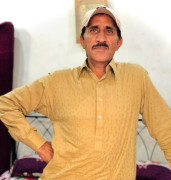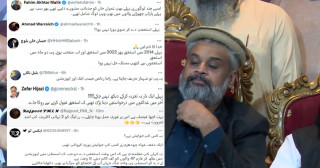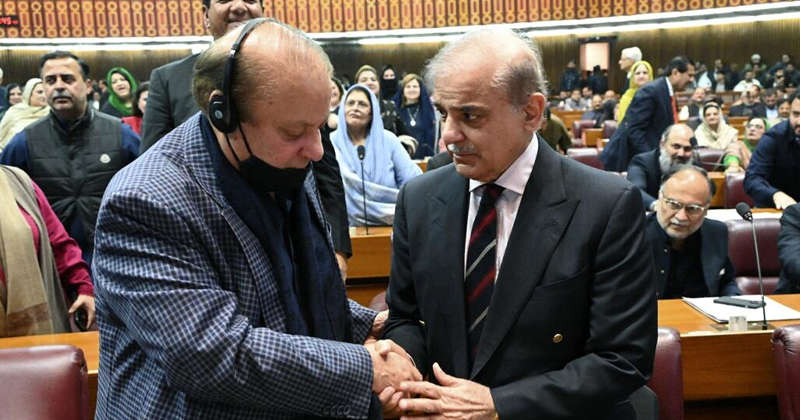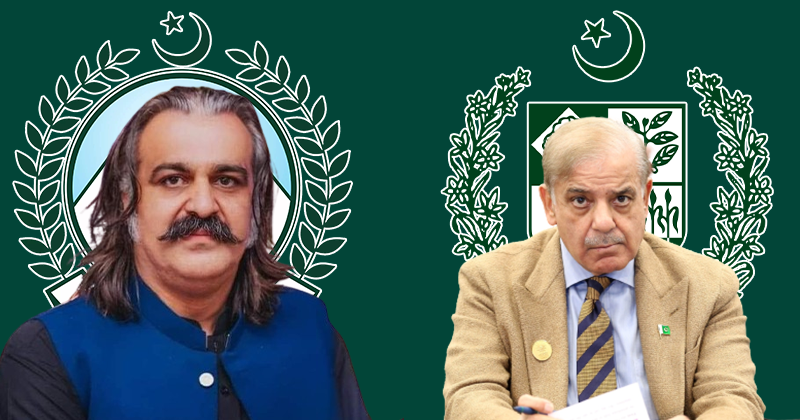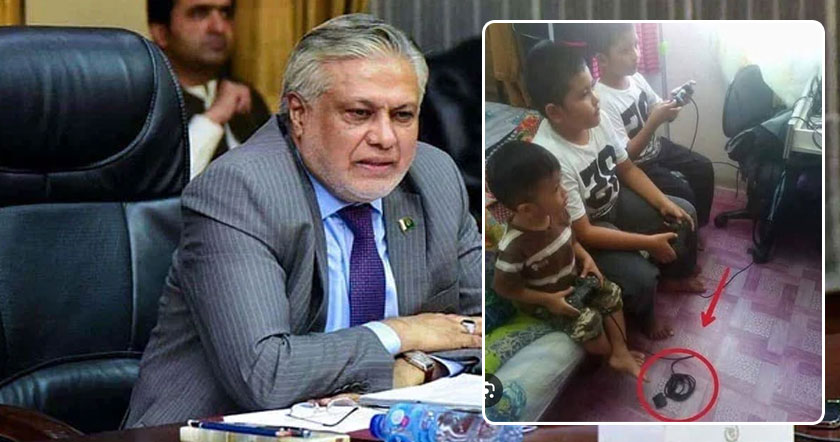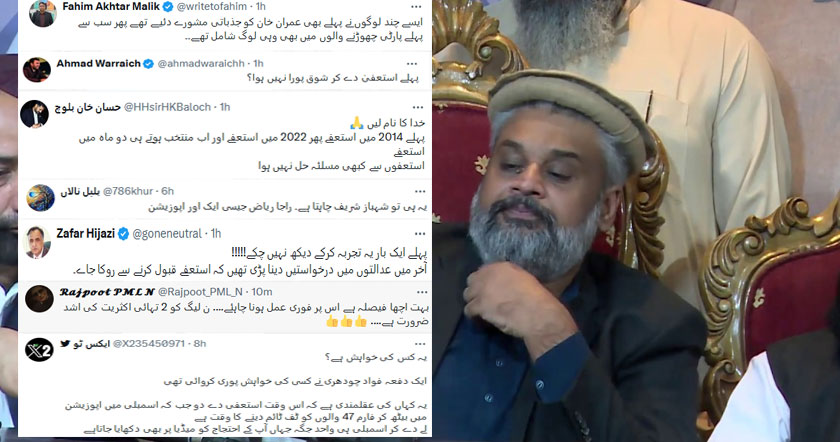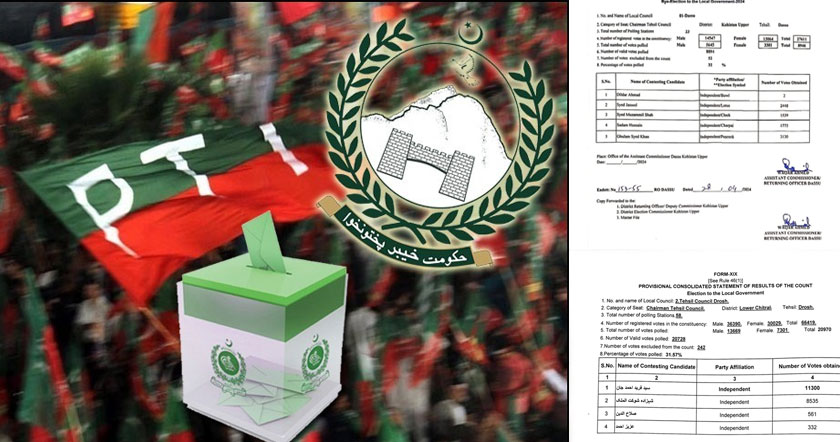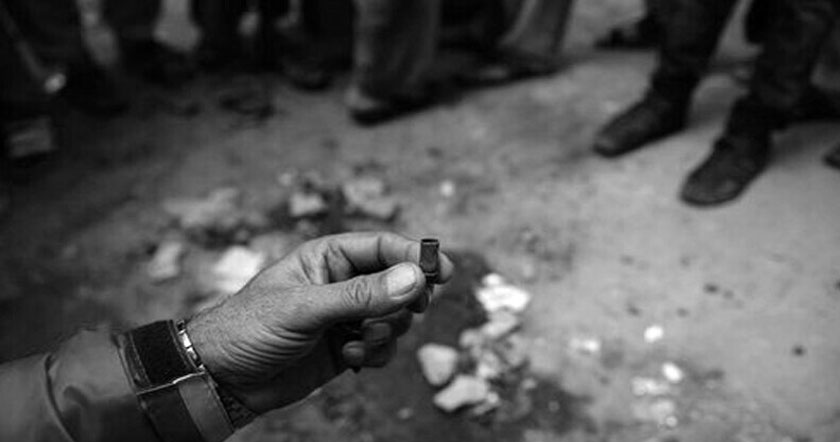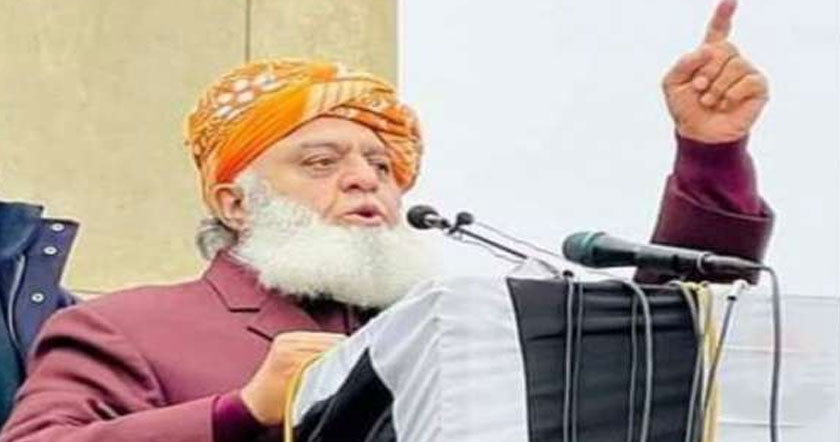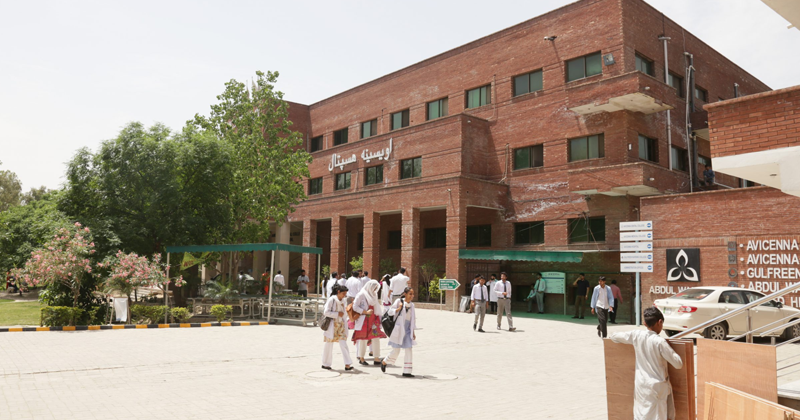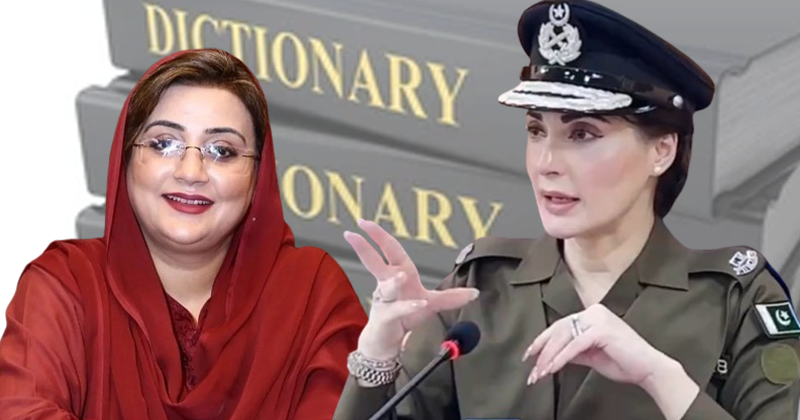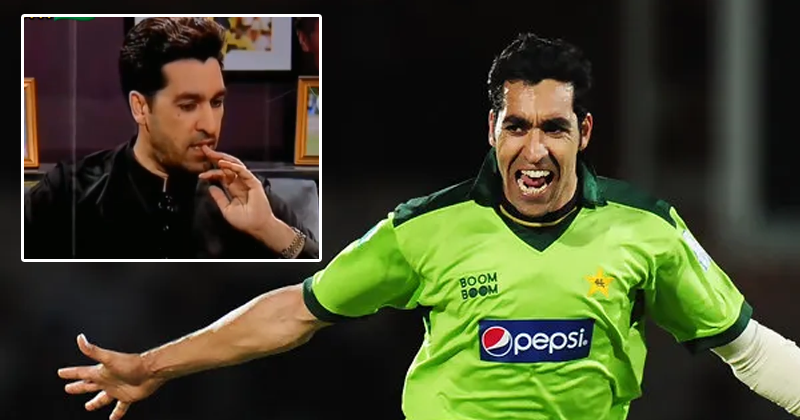Postcards from Hell, 2011
Images from the world's most failed states.
BY ELIZABETH DICKINSON | JUNE 20, 2011

Hear the words "failed state," and a certain unshakable set of images likely floods your vision. There is poverty, insecurity, and a disregard for human dignity. Families fight for their survival, and political regimes fight to extend their rule. Some weak states are simply geographical aspirations on a map, filled with destitution and squalor. Others are, if anything, too strong; citizens of Zimbabwe and Syria might be better off if their countries' security forces weren't quite so good at repression.
This is the world of the fragile state -- a world that is a grim reality for an alarming percentage of the global population. A quarter of the world's human beings live in the 60 worst-ranking countries on the 2011 Failed States Index (FSI), which examines the year 2010. Here's a glimpse of their daily existence.

1. SOMALIA
FSI Score: 113.4
Relatively speaking, the first months of 2011 have been full of good news for Somalia, the world's closest approximation of anarchy. For two full decades, the majority of the territory in this crescent-shaped country on the Horn of Africa has gone essentially ungoverned; an internationally recognized transitional government is fighting tooth and nail to control the capital. Yet after months of stalemate with Islamist insurgents, the momentum finally seems to be turning. Block by block, the national troops -- with the considerable help of an African Union-U.N. joint peacekeeping mission -- have made significant territorial gains in Mogadishu.
Yet Somalia is still in tatters. Out of a population of nearly 10 million, as many as 3 million are thought to need humanitarian assistance. Another 2 million have been uprooted in the conflict, and political infighting has paralyzed the nascent government. Neighboring Uganda has warned that the fractures stand to make matters worse, offering Islamist insurgent groups a chance to reorganize.
Perhaps the greatest fear looming over Somalia today is that it will become the next haven for al Qaeda fleeing Afghanistan. Somalia's Islamist rebels, who call themselves al-Shabab, have already pledged their allegiance to the global terrorist network.
Here, demonstrators in Mogadishu denounce the United Nations mission in the country, accusing it of spending too much on flying diplomats in and out of Nairobi and not enough on fixing what's broken in Somalia.

2. CHAD
FSI Score: 110.3
In an April 25 poll, Chad's strongman president, Idriss Dby, won a landslide reelection with almost 90 percent of the vote. The ballot was flawed and turnout was low, but the president claimed victory, meaning that this onetime coup leader will rule for a full quarter-century by the time he comes up for another vote in 2016. The result barely made headlines outside West Africa and the former colonial power, France. So untouchable is Dby's rule -- and so downtrodden is the opposition -- that everyone knew who was going to win.
It's also clear who is going to lose: the people of Chad. Since Dby came to power, Chad has discovered oil, courted the World Bank, and watched as the rest of Africa has begun to boom. The country, however, has seen precious little improvement. Just 23 percent of Chadians in urban areas have access to clean water, for example; in rural areas the numbers are even lower. Life expectancy hovers at a mere 49 years. Government budgets, frothy with oil wealth, have been directed toward the purchase of arms to ward off rebel groups in the country's east. Soldiers pictured here patrol near the city of Abeche, a rebel stronghold.

3. SUDAN
FSI Score: 108.7
Sudan is going through a painful divorce. In January, the country's south voted to secede from the north -- an option made possible when a U.S.-brokered peace deal ended a decades-long north-south civil war in 2005. The referendum went smoothly, in part thanks to intensive international pressure on Khartoum to keep things peaceful. But by late spring, things were taking a turn for the worse. Khartoum and Juba, the capital of the new Southern Sudan, never agreed on a border -- and they especially never agreed on who would gain control of Abyei, an oil-rich region long claimed by both sides. In late May, Khartoum's soldiers moved into Abyei town, shelling a U.N. peacekeeping mission and displacing upwards of 100,000 people.
The worst-case scenario for Sudan -- a return to civil war -- is now looming on the horizon. Southern Sudan is set to formally become independent on July 9, but that may not go forward -- or at least not smoothly -- without some agreement over Abyei. In the meantime, the ongoing conflict is keeping Sudan's population of 42 million in a state of terror, particularly the more than 1.5 million who have fled their homes, some of whom are pictured here.
And even if partition goes ahead, Southern Sudan will be born amid a plethora of its own problems, earning it the dubious distinction of being a "pre-failed state." Only half the region's children are in school, a similarly dismal proportion has access to clean water, and 85 percent of adults cannot read or write. And the nascent government-in-the-making set to tackle all these challenges? Its budget is a mere $2.3 billion, about as much as the U.S. Defense Department requested for cybersecurity in 2011.

4. DEMOCRATIC REPUBLIC OF THE CONGO
FSI Score: 108.2
The Democratic Republic of the Congo (DRC) has the dubious honor of being both one of the world's richest countries -- its soils are host to massive deposits of gold, coltan, and other minerals -- and one of the most underdeveloped places on Earth. In the country's wild east, where much of the mineral wealth lies, armed militias terrorize the impoverished population in a perpetual struggle to control land, mines, and supply-chain routes. This potent combination of insecurity, impunity, and existence on the edge has left more souls dead over the last 12years than any conflict since World War II. For the living, there is equal horror: An epidemic of rape, documented meticulously for the first time this year, victimizes an estimated 48 women every hour.
In November, the DRC will hold a presidential election, a big test for the country almost a decade after its civil war officially ended. The signs look ominous, however. Late last year, for example, one of the country's most prominent human rights activists, Floribert Chebeya, was found murdered, with policemen accused of the crime. Here, the alleged perpetrators stand trial in Kinshasa.

5.HAITI
FSI Score: 108.0
A streak of terrible luck pushed Haiti up in the rankings this year. An earthquake in January 2010 flattened the country, leaving tens of thousands dead, including 20 percent of the country's civil servants. The international aid effort to rebuild the country was poorly coordinated; it also largely circumvented a government in desperate need of bolstering. Billions of dollars in promised aid, including $732.5 million from the U.S. government, was slow to arrive.
Still reeling from the disaster, Haiti held a presidential contest in November (with a runoff this March) that saw the election of musician Michel Martelly, known better as "Sweet Micky." Among the new president's many challenges will be convincing the more than 1 million Haitians still living in tent camps to return home. Here, a young Haitian boy begs near the cathedral in the capital, Port-au-Prince.

6. ZIMBABWE
FSI Score: 107.9
Two days after a petrol bomb blasted through his office, Zimbabwe's finance minister, Tendai Biti, warned that his country might be on the brink of another Rwanda-like genocide. "I just hope we avoid a Rwanda where the military is in control, law and order breaks down, and there is total violence," he told the Guardian.
Biti is not your average minister. He's a member of the Movement for Democratic Change (MDC), the unwilling coalition partner of President Robert Mugabe's ruling ZANU-PF party. The MDC beat Mugabe at the polls in 2008, but when the president refused to step down, neighboring South Africa brokered a deal for both parties to share rule. Despite their supposedly equal power in government, the MDC has been effectively sidelined in recent months, the victim of threats, arrests, and political marginalization. Mugabe still calls the shots. Tired of ruling with even these minimal checks from his MDC partners, Mugabe's party has vowed to call elections this year. The MDC fears that the result will be even further intimidation and violence.
The greatest tragedy in all this may be that life in Zimbabwe is actually improving. Beginning in 2008, the coalition government pulled the economy out of free fall and began to end the international marginalization of recent years. Public health, too, is improving, after a low point in 2008 when a cholera epidemic infected some 30,000. The family here buries one of the dead.

7. AFGHANISTAN
FSI Score: 107.5
Overshadowed by the debate over NATO's military operations, the stories of a resurgent Taliban, and the West's perpetual consternation with local corruption, a humanitarian nightmare is unfolding in Afghanistan. Violence has been "metastasizing" throughout the country, in the words of FP contributor Anna Badkhen. Assaults and abuse of women have reached tragic proportions, despite U.S. promises a decade ago to liberate the country's other half. Child mortality rates are almost three times as high as they are in the rest of South Asia.
This complete lack of social well-being both contributes to Afghanistan's insecurity and is perpetuated by it -- a vicious cycle that 10 years of NATO operations has failed to end. Desperate communities are tempted to turn to the Taliban for protection, frontier justice, and even a wage; the resulting insurgent control keeps the state from being able to provide services or security in rural areas. Here, a member of the Afghan army guards a post in Kandahar that had been under siege for two days this May.

8. CENTRAL AFRICAN REPUBLIC
FSI Score: 105.0
Perhaps the creators of the Central African Republic (CAR) foresaw that it would be one of the world's most forgotten states; its name aptly reminds you that it actually is on the map. Isolated and resource-poor, in a neighborhood with fellow top failed states Chad, Sudan, and the Democratic Republic of the Congo, the CAR is every bit as troubled as its harsh geography implies.
The collateral damage from the conflicts that the CAR has absorbed over its borders in recent years hasn't helped. Refugees from Darfur, Sudan, have flooded in; rebel groups in Chad drove in thousands more. Meanwhile, Uganda's infamous Lord's Resistance Army fled to the insecurity of the central African state when Kampala cracked down. On top of it all, internal rebels, militias, and even government troops pose an additional threat to civilians in a country where impunity is the only rule of law.
The numbers tell the story. Two-thirds of the country's citizens are grossly impoverished, a proportion that hasn't budged for two decades. The United Nations ranks it one of the least-developed countries in the world. Here, displaced refugees stay in a camp in the country's north in 2007.

9. IRAQ
FSI Score: 104.8
After eight years at the forefront of U.S. attention, Iraq today is, if anything, America's forgotten war. The violence has calmed from its peak in 2007, but security is far from assured in many pockets of the country. And behind the hard stats on the number of bombings or insurgent attacks, this country is still reeling from decades of sanctions and conflict. On any number of indicators -- from educational enrollment to child mortality rates -- Iraq today looks worse than it did just a few years ago. A child here is pictured in the Zaafaraniyah district of Baghdad on January 26.
Among Iraq's hidden tragedies are the more than 3 million people who fled their homes during the worst of the fighting and still haven't gone home. This January, the U.N. refugee agency requested $280 million for the care of the displaced, now living in a dozen different states.

10. IVORY COAST
FSI Score: 102.8
During the months between December 2010 and April 2011, the people of the Ivory Coast lived through a nightmare. Late last fall, the country went to the polls to elect a new president; the winner, Alassane Ouattara, secured victory by a tiny (but internationally certified) margin. The incumbent, Laurent Gbagbo, refused to go. A showdown ensued, lasting four months and culminating with Ouattara's armed supporters storming the outgoing president's residence. Ouattara was finally installed in office almost half a year late.
Unfortunately, during those tense weeks of political deadlock, gangs loyal to Gbagbo "cleansed" the streets of Abidjan, disappearing perceived and real Ouattara supporters. Meanwhile, as Ouattara's men marched toward the capital, they reportedly left a trail of destruction. Mass graves with as many as 1,000 bodies were discovered in the western city of Duekoue.
It may take months or longer for the Ivory Coast to get back to where it was even a year ago. The economy ground to a halt during the crisis, while the fighting hardened social divisions in a society already fractured by a recent civil war. Now that Ouattara has the job, he will have plenty of work to do. Here, one of his soldiers patrols the streets of Abidjan on May 4.

11. GUINEA
FSI Score: 102.5
When Alpha Conde became the first democratically elected president in Guinea's half-century as an independent state, he inherited a laundry list of legacies to try to undo: an overly militarized state, a culture of judicial impunity, a corrupt and unregulated mining sector (from which the government draws 70 percent of its revenues), and an impoverished population. Just over a third of Guineans can read and write.
Yet the window of calm, and the opportunity to catch up, are welcome in this brand-new democracy. "President Conde's actions -- or inactions -- will either create a positive new human rights trajectory or trap Guinea in the excesses and abuses of the past," Human Rights Watch's senior West Africa researcher Corinne Dufka said when releasing a report on the country's future. The court where Conde was inaugurated in December 2010 is pictured here.

12. PAKISTAN
FSI Score: 102.3
It may not top the Failed States Index, but Pakistan has long been dubbed the world's most dangerous country in Washington policy circles -- a notion only reinforced when al Qaeda leader Osama bin Laden was found and killed just minutes away from a national military academy near Islamabad on May 2. Tick off any checklist of U.S. national security concerns, and Pakistan has them all: nuclear weapons, terrorist and insurgent groups galore, and rampant anti-American sentiment. Add to all this a volatile political system, and it's no wonder that Pakistan preoccupies so many Western security analysts.
Yet Pakistan isn't just dangerous for the West -- it's often a danger to its own people. It is Pakistanis who have paid the highest price for terrorist attacks in recent years. Thousands have died in attacks on Pakistani soil. Worse yet still, last summer's floods reportedly affected 14 million people; 650,000 houses were destroyed. A woman here holds up photos of her sons, former military men who died in a terrorist attack on May 30 this year.

13. YEMEN
FSI Score: 100.3
It's difficult to think of a country that is failing more spectacularly than Yemen, which, depending on whom you ask, may have slipped into civil war in early June. When the Arab Spring made its way to Yemen, the country was already on the edge: running out of water and oil, threatened by multiple insurgencies, and home to a resurgent al Qaeda. Demonstrations to oust the 33 years-serving President Ali Abdullah Saleh were refreshingly nonviolent for months -- even though the government's response wasn't. But when a rival political family joined the fight for Saleh's ouster in late May, the capital Sanaa became a bloodbath, as pictured here. A mysterious explosion rocked the presidential mosque, gravely wounding Saleh, who then flew to Saudi Arabia for treatment.
All eyes are now on acting president Abd al-Rab Mansur al-Hadi, who will have to reconcile the opposition's demands with those of the president's family and inner circle. Whoever comes out on top will have their work cut out for them. Yemen is the poorest country in the region, with a per capita income just $2,600 -- and that's before the oil runs out. Ominously, Yemen is also the most armed country, not just in the region but in the world, with an incredible 54.8 guns for every 100 people.

14. NIGERIA
FSI Score: 99.9
If there were a dictionary of geopolitics, Nigeria might be listed under "resource curse." Africa's largest oil producer, the country shows all the telltale signs of a country destroyed by its own wealth. The government gets between 85 and 90 percent of its revenues from oil, erasing the incentives to boost other economic sectors, even though nearly two-thirds of Nigerians work in agriculture. Political posts are so lucrative (governors may earn as much as $1 million in benefits during their terms) that elections have frequently been plagued by violence and ballot stuffing. This year's election was slightly cleaner, but violence rocked the discontented north after the results were announced. Above, election officials count ballots.
But the most apparent symptom of the resource curse in Nigeria is the dilapidated state in which so many of the country's 150 million citizens live. The percentage of Nigerians living on less than $1 a day has actually risen since 1993. Life expectancy hovers around 48.4 years, and the average Nigerian goes to school for just five years.

15. NIGER
FSI Score: 99.1
According to the United Nations,Niger beats out only two countries when it comes to human development; the Democratic Republic of the Congo and Zimbabwe. That dismal result boils down largely to one thing: a complete lack of public services, from education to health care. Adults in this West African country have attended school for just 1.4 years on average. A mere 33 percent of births are attended by a skilled midwife or doctor.
To make matters worse, last August the usual rainy season turned unusually furious, inundating the country and destroying 5,000 people's crops and homes. A state ill-equipped to deal with its usual struggles found itself virtually powerless to help. Almost as soon as the flooding began, aid agencies started warning of a "double crisis" of massive food shortages. Just two months in office, the newly elected president, Mahamadou Issoufou, still has much work to do. A poster for one of his opponents is pictured here in March.

16. KENYA
FSI Score: 98.7
On Aug. 4, 2010, Kenyans approved a widely applauded new constitution, one intended to modernize the government, accommodate grievances over land and local power, and prevent the electoral violence that shocked the world in late 2007 and early 2008. In many ways, Kenya's rank on this year's index still represents that legacy of political violence -- a recent history it is trying desperately to transcend.
Doing so won't be easy. The government has been slow to investigate and prosecute those responsible for the unrest, leaving the work to the International Criminal Court. Land, often handed out as patronage, also remains a contentious issue. And the violence hasn't totally disappeared. The man above was killed in a skirmish in December 2010 for an unknown reason.
Still, Kenya is a positive story in many ways. The country is on track to achieve five of eight development goals set by the United Nations in 2000. With a relatively well-educated population (87 percent are literate) and a strong middle class, it will likely retain its reputation as the economic center of East Africa.

17. BURUNDI
FSI Score: 98.6
When Burundians went to the polls in May 2010, they had already gotten quite a taste of how the elections would be run: with bribery and intimidation. Human Rights Watch documented the subsequent arrest of 250 opposition leaders in June and July; journalists were also targeted. That the incumbent president, Pierre Nkurunziza, captured a majority of the votes was no surprise. All six other opposition candidates had dropped out. The elections were a window into daily life in Burundi, which is plagued by the perpetual threat of political violence.
Material conditions are also difficult. Unlike neighboring Rwanda, which has rebounded from its 1994 genocide with strong economic growth, Burundi has oscillated between conflict and calm since a related genocide in 1993. The instability has deterred investors and prevented any development from taking hold. Today, two-thirds of the population lives under the poverty line.
Burundian refugees are pictured here returning from neighboring Democratic Republic of the Congo.

18. BURMA
FSI Score: 98.3
You would be forgiven for not noticing that Burma held elections in November 2010. Despite the installation of a new head of state, the country's ruling military junta remains in power; the democratic opposition thwarted by procedural rules. As the U.S. State Department tactfully put it, "The generals who have ruled the country for the past 22 years missed an opportunity to begin genuine transition toward democratic governance and national reconciliation."
The ground-level result is more of the same: Opposition activists claim that 90 percent of the population lives in poverty and that the government spends as much as half of its revenue on bolstering the military. Regional uprisings against the junta's rule are often brutally quashed. In December 2010, 20,000 people, including those pictured here, fled to Thailand when rebels clashed with the government in the Thai border town of Mae Sot.
Images from the world's most failed states.
BY ELIZABETH DICKINSON | JUNE 20, 2011
Hear the words "failed state," and a certain unshakable set of images likely floods your vision. There is poverty, insecurity, and a disregard for human dignity. Families fight for their survival, and political regimes fight to extend their rule. Some weak states are simply geographical aspirations on a map, filled with destitution and squalor. Others are, if anything, too strong; citizens of Zimbabwe and Syria might be better off if their countries' security forces weren't quite so good at repression.
This is the world of the fragile state -- a world that is a grim reality for an alarming percentage of the global population. A quarter of the world's human beings live in the 60 worst-ranking countries on the 2011 Failed States Index (FSI), which examines the year 2010. Here's a glimpse of their daily existence.
1. SOMALIA
FSI Score: 113.4
Relatively speaking, the first months of 2011 have been full of good news for Somalia, the world's closest approximation of anarchy. For two full decades, the majority of the territory in this crescent-shaped country on the Horn of Africa has gone essentially ungoverned; an internationally recognized transitional government is fighting tooth and nail to control the capital. Yet after months of stalemate with Islamist insurgents, the momentum finally seems to be turning. Block by block, the national troops -- with the considerable help of an African Union-U.N. joint peacekeeping mission -- have made significant territorial gains in Mogadishu.
Yet Somalia is still in tatters. Out of a population of nearly 10 million, as many as 3 million are thought to need humanitarian assistance. Another 2 million have been uprooted in the conflict, and political infighting has paralyzed the nascent government. Neighboring Uganda has warned that the fractures stand to make matters worse, offering Islamist insurgent groups a chance to reorganize.
Perhaps the greatest fear looming over Somalia today is that it will become the next haven for al Qaeda fleeing Afghanistan. Somalia's Islamist rebels, who call themselves al-Shabab, have already pledged their allegiance to the global terrorist network.
Here, demonstrators in Mogadishu denounce the United Nations mission in the country, accusing it of spending too much on flying diplomats in and out of Nairobi and not enough on fixing what's broken in Somalia.
2. CHAD
FSI Score: 110.3
In an April 25 poll, Chad's strongman president, Idriss Dby, won a landslide reelection with almost 90 percent of the vote. The ballot was flawed and turnout was low, but the president claimed victory, meaning that this onetime coup leader will rule for a full quarter-century by the time he comes up for another vote in 2016. The result barely made headlines outside West Africa and the former colonial power, France. So untouchable is Dby's rule -- and so downtrodden is the opposition -- that everyone knew who was going to win.
It's also clear who is going to lose: the people of Chad. Since Dby came to power, Chad has discovered oil, courted the World Bank, and watched as the rest of Africa has begun to boom. The country, however, has seen precious little improvement. Just 23 percent of Chadians in urban areas have access to clean water, for example; in rural areas the numbers are even lower. Life expectancy hovers at a mere 49 years. Government budgets, frothy with oil wealth, have been directed toward the purchase of arms to ward off rebel groups in the country's east. Soldiers pictured here patrol near the city of Abeche, a rebel stronghold.

3. SUDAN
FSI Score: 108.7
Sudan is going through a painful divorce. In January, the country's south voted to secede from the north -- an option made possible when a U.S.-brokered peace deal ended a decades-long north-south civil war in 2005. The referendum went smoothly, in part thanks to intensive international pressure on Khartoum to keep things peaceful. But by late spring, things were taking a turn for the worse. Khartoum and Juba, the capital of the new Southern Sudan, never agreed on a border -- and they especially never agreed on who would gain control of Abyei, an oil-rich region long claimed by both sides. In late May, Khartoum's soldiers moved into Abyei town, shelling a U.N. peacekeeping mission and displacing upwards of 100,000 people.
The worst-case scenario for Sudan -- a return to civil war -- is now looming on the horizon. Southern Sudan is set to formally become independent on July 9, but that may not go forward -- or at least not smoothly -- without some agreement over Abyei. In the meantime, the ongoing conflict is keeping Sudan's population of 42 million in a state of terror, particularly the more than 1.5 million who have fled their homes, some of whom are pictured here.
And even if partition goes ahead, Southern Sudan will be born amid a plethora of its own problems, earning it the dubious distinction of being a "pre-failed state." Only half the region's children are in school, a similarly dismal proportion has access to clean water, and 85 percent of adults cannot read or write. And the nascent government-in-the-making set to tackle all these challenges? Its budget is a mere $2.3 billion, about as much as the U.S. Defense Department requested for cybersecurity in 2011.

4. DEMOCRATIC REPUBLIC OF THE CONGO
FSI Score: 108.2
The Democratic Republic of the Congo (DRC) has the dubious honor of being both one of the world's richest countries -- its soils are host to massive deposits of gold, coltan, and other minerals -- and one of the most underdeveloped places on Earth. In the country's wild east, where much of the mineral wealth lies, armed militias terrorize the impoverished population in a perpetual struggle to control land, mines, and supply-chain routes. This potent combination of insecurity, impunity, and existence on the edge has left more souls dead over the last 12years than any conflict since World War II. For the living, there is equal horror: An epidemic of rape, documented meticulously for the first time this year, victimizes an estimated 48 women every hour.
In November, the DRC will hold a presidential election, a big test for the country almost a decade after its civil war officially ended. The signs look ominous, however. Late last year, for example, one of the country's most prominent human rights activists, Floribert Chebeya, was found murdered, with policemen accused of the crime. Here, the alleged perpetrators stand trial in Kinshasa.

5.HAITI
FSI Score: 108.0
A streak of terrible luck pushed Haiti up in the rankings this year. An earthquake in January 2010 flattened the country, leaving tens of thousands dead, including 20 percent of the country's civil servants. The international aid effort to rebuild the country was poorly coordinated; it also largely circumvented a government in desperate need of bolstering. Billions of dollars in promised aid, including $732.5 million from the U.S. government, was slow to arrive.
Still reeling from the disaster, Haiti held a presidential contest in November (with a runoff this March) that saw the election of musician Michel Martelly, known better as "Sweet Micky." Among the new president's many challenges will be convincing the more than 1 million Haitians still living in tent camps to return home. Here, a young Haitian boy begs near the cathedral in the capital, Port-au-Prince.

6. ZIMBABWE
FSI Score: 107.9
Two days after a petrol bomb blasted through his office, Zimbabwe's finance minister, Tendai Biti, warned that his country might be on the brink of another Rwanda-like genocide. "I just hope we avoid a Rwanda where the military is in control, law and order breaks down, and there is total violence," he told the Guardian.
Biti is not your average minister. He's a member of the Movement for Democratic Change (MDC), the unwilling coalition partner of President Robert Mugabe's ruling ZANU-PF party. The MDC beat Mugabe at the polls in 2008, but when the president refused to step down, neighboring South Africa brokered a deal for both parties to share rule. Despite their supposedly equal power in government, the MDC has been effectively sidelined in recent months, the victim of threats, arrests, and political marginalization. Mugabe still calls the shots. Tired of ruling with even these minimal checks from his MDC partners, Mugabe's party has vowed to call elections this year. The MDC fears that the result will be even further intimidation and violence.
The greatest tragedy in all this may be that life in Zimbabwe is actually improving. Beginning in 2008, the coalition government pulled the economy out of free fall and began to end the international marginalization of recent years. Public health, too, is improving, after a low point in 2008 when a cholera epidemic infected some 30,000. The family here buries one of the dead.

7. AFGHANISTAN
FSI Score: 107.5
Overshadowed by the debate over NATO's military operations, the stories of a resurgent Taliban, and the West's perpetual consternation with local corruption, a humanitarian nightmare is unfolding in Afghanistan. Violence has been "metastasizing" throughout the country, in the words of FP contributor Anna Badkhen. Assaults and abuse of women have reached tragic proportions, despite U.S. promises a decade ago to liberate the country's other half. Child mortality rates are almost three times as high as they are in the rest of South Asia.
This complete lack of social well-being both contributes to Afghanistan's insecurity and is perpetuated by it -- a vicious cycle that 10 years of NATO operations has failed to end. Desperate communities are tempted to turn to the Taliban for protection, frontier justice, and even a wage; the resulting insurgent control keeps the state from being able to provide services or security in rural areas. Here, a member of the Afghan army guards a post in Kandahar that had been under siege for two days this May.

8. CENTRAL AFRICAN REPUBLIC
FSI Score: 105.0
Perhaps the creators of the Central African Republic (CAR) foresaw that it would be one of the world's most forgotten states; its name aptly reminds you that it actually is on the map. Isolated and resource-poor, in a neighborhood with fellow top failed states Chad, Sudan, and the Democratic Republic of the Congo, the CAR is every bit as troubled as its harsh geography implies.
The collateral damage from the conflicts that the CAR has absorbed over its borders in recent years hasn't helped. Refugees from Darfur, Sudan, have flooded in; rebel groups in Chad drove in thousands more. Meanwhile, Uganda's infamous Lord's Resistance Army fled to the insecurity of the central African state when Kampala cracked down. On top of it all, internal rebels, militias, and even government troops pose an additional threat to civilians in a country where impunity is the only rule of law.
The numbers tell the story. Two-thirds of the country's citizens are grossly impoverished, a proportion that hasn't budged for two decades. The United Nations ranks it one of the least-developed countries in the world. Here, displaced refugees stay in a camp in the country's north in 2007.

9. IRAQ
FSI Score: 104.8
After eight years at the forefront of U.S. attention, Iraq today is, if anything, America's forgotten war. The violence has calmed from its peak in 2007, but security is far from assured in many pockets of the country. And behind the hard stats on the number of bombings or insurgent attacks, this country is still reeling from decades of sanctions and conflict. On any number of indicators -- from educational enrollment to child mortality rates -- Iraq today looks worse than it did just a few years ago. A child here is pictured in the Zaafaraniyah district of Baghdad on January 26.
Among Iraq's hidden tragedies are the more than 3 million people who fled their homes during the worst of the fighting and still haven't gone home. This January, the U.N. refugee agency requested $280 million for the care of the displaced, now living in a dozen different states.

10. IVORY COAST
FSI Score: 102.8
During the months between December 2010 and April 2011, the people of the Ivory Coast lived through a nightmare. Late last fall, the country went to the polls to elect a new president; the winner, Alassane Ouattara, secured victory by a tiny (but internationally certified) margin. The incumbent, Laurent Gbagbo, refused to go. A showdown ensued, lasting four months and culminating with Ouattara's armed supporters storming the outgoing president's residence. Ouattara was finally installed in office almost half a year late.
Unfortunately, during those tense weeks of political deadlock, gangs loyal to Gbagbo "cleansed" the streets of Abidjan, disappearing perceived and real Ouattara supporters. Meanwhile, as Ouattara's men marched toward the capital, they reportedly left a trail of destruction. Mass graves with as many as 1,000 bodies were discovered in the western city of Duekoue.
It may take months or longer for the Ivory Coast to get back to where it was even a year ago. The economy ground to a halt during the crisis, while the fighting hardened social divisions in a society already fractured by a recent civil war. Now that Ouattara has the job, he will have plenty of work to do. Here, one of his soldiers patrols the streets of Abidjan on May 4.

11. GUINEA
FSI Score: 102.5
When Alpha Conde became the first democratically elected president in Guinea's half-century as an independent state, he inherited a laundry list of legacies to try to undo: an overly militarized state, a culture of judicial impunity, a corrupt and unregulated mining sector (from which the government draws 70 percent of its revenues), and an impoverished population. Just over a third of Guineans can read and write.
Yet the window of calm, and the opportunity to catch up, are welcome in this brand-new democracy. "President Conde's actions -- or inactions -- will either create a positive new human rights trajectory or trap Guinea in the excesses and abuses of the past," Human Rights Watch's senior West Africa researcher Corinne Dufka said when releasing a report on the country's future. The court where Conde was inaugurated in December 2010 is pictured here.
12. PAKISTAN
FSI Score: 102.3
It may not top the Failed States Index, but Pakistan has long been dubbed the world's most dangerous country in Washington policy circles -- a notion only reinforced when al Qaeda leader Osama bin Laden was found and killed just minutes away from a national military academy near Islamabad on May 2. Tick off any checklist of U.S. national security concerns, and Pakistan has them all: nuclear weapons, terrorist and insurgent groups galore, and rampant anti-American sentiment. Add to all this a volatile political system, and it's no wonder that Pakistan preoccupies so many Western security analysts.
Yet Pakistan isn't just dangerous for the West -- it's often a danger to its own people. It is Pakistanis who have paid the highest price for terrorist attacks in recent years. Thousands have died in attacks on Pakistani soil. Worse yet still, last summer's floods reportedly affected 14 million people; 650,000 houses were destroyed. A woman here holds up photos of her sons, former military men who died in a terrorist attack on May 30 this year.

13. YEMEN
FSI Score: 100.3
It's difficult to think of a country that is failing more spectacularly than Yemen, which, depending on whom you ask, may have slipped into civil war in early June. When the Arab Spring made its way to Yemen, the country was already on the edge: running out of water and oil, threatened by multiple insurgencies, and home to a resurgent al Qaeda. Demonstrations to oust the 33 years-serving President Ali Abdullah Saleh were refreshingly nonviolent for months -- even though the government's response wasn't. But when a rival political family joined the fight for Saleh's ouster in late May, the capital Sanaa became a bloodbath, as pictured here. A mysterious explosion rocked the presidential mosque, gravely wounding Saleh, who then flew to Saudi Arabia for treatment.
All eyes are now on acting president Abd al-Rab Mansur al-Hadi, who will have to reconcile the opposition's demands with those of the president's family and inner circle. Whoever comes out on top will have their work cut out for them. Yemen is the poorest country in the region, with a per capita income just $2,600 -- and that's before the oil runs out. Ominously, Yemen is also the most armed country, not just in the region but in the world, with an incredible 54.8 guns for every 100 people.

14. NIGERIA
FSI Score: 99.9
If there were a dictionary of geopolitics, Nigeria might be listed under "resource curse." Africa's largest oil producer, the country shows all the telltale signs of a country destroyed by its own wealth. The government gets between 85 and 90 percent of its revenues from oil, erasing the incentives to boost other economic sectors, even though nearly two-thirds of Nigerians work in agriculture. Political posts are so lucrative (governors may earn as much as $1 million in benefits during their terms) that elections have frequently been plagued by violence and ballot stuffing. This year's election was slightly cleaner, but violence rocked the discontented north after the results were announced. Above, election officials count ballots.
But the most apparent symptom of the resource curse in Nigeria is the dilapidated state in which so many of the country's 150 million citizens live. The percentage of Nigerians living on less than $1 a day has actually risen since 1993. Life expectancy hovers around 48.4 years, and the average Nigerian goes to school for just five years.
15. NIGER
FSI Score: 99.1
According to the United Nations,Niger beats out only two countries when it comes to human development; the Democratic Republic of the Congo and Zimbabwe. That dismal result boils down largely to one thing: a complete lack of public services, from education to health care. Adults in this West African country have attended school for just 1.4 years on average. A mere 33 percent of births are attended by a skilled midwife or doctor.
To make matters worse, last August the usual rainy season turned unusually furious, inundating the country and destroying 5,000 people's crops and homes. A state ill-equipped to deal with its usual struggles found itself virtually powerless to help. Almost as soon as the flooding began, aid agencies started warning of a "double crisis" of massive food shortages. Just two months in office, the newly elected president, Mahamadou Issoufou, still has much work to do. A poster for one of his opponents is pictured here in March.

16. KENYA
FSI Score: 98.7
On Aug. 4, 2010, Kenyans approved a widely applauded new constitution, one intended to modernize the government, accommodate grievances over land and local power, and prevent the electoral violence that shocked the world in late 2007 and early 2008. In many ways, Kenya's rank on this year's index still represents that legacy of political violence -- a recent history it is trying desperately to transcend.
Doing so won't be easy. The government has been slow to investigate and prosecute those responsible for the unrest, leaving the work to the International Criminal Court. Land, often handed out as patronage, also remains a contentious issue. And the violence hasn't totally disappeared. The man above was killed in a skirmish in December 2010 for an unknown reason.
Still, Kenya is a positive story in many ways. The country is on track to achieve five of eight development goals set by the United Nations in 2000. With a relatively well-educated population (87 percent are literate) and a strong middle class, it will likely retain its reputation as the economic center of East Africa.

17. BURUNDI
FSI Score: 98.6
When Burundians went to the polls in May 2010, they had already gotten quite a taste of how the elections would be run: with bribery and intimidation. Human Rights Watch documented the subsequent arrest of 250 opposition leaders in June and July; journalists were also targeted. That the incumbent president, Pierre Nkurunziza, captured a majority of the votes was no surprise. All six other opposition candidates had dropped out. The elections were a window into daily life in Burundi, which is plagued by the perpetual threat of political violence.
Material conditions are also difficult. Unlike neighboring Rwanda, which has rebounded from its 1994 genocide with strong economic growth, Burundi has oscillated between conflict and calm since a related genocide in 1993. The instability has deterred investors and prevented any development from taking hold. Today, two-thirds of the population lives under the poverty line.
Burundian refugees are pictured here returning from neighboring Democratic Republic of the Congo.

18. BURMA
FSI Score: 98.3
You would be forgiven for not noticing that Burma held elections in November 2010. Despite the installation of a new head of state, the country's ruling military junta remains in power; the democratic opposition thwarted by procedural rules. As the U.S. State Department tactfully put it, "The generals who have ruled the country for the past 22 years missed an opportunity to begin genuine transition toward democratic governance and national reconciliation."
The ground-level result is more of the same: Opposition activists claim that 90 percent of the population lives in poverty and that the government spends as much as half of its revenue on bolstering the military. Regional uprisings against the junta's rule are often brutally quashed. In December 2010, 20,000 people, including those pictured here, fled to Thailand when rebels clashed with the government in the Thai border town of Mae Sot.















